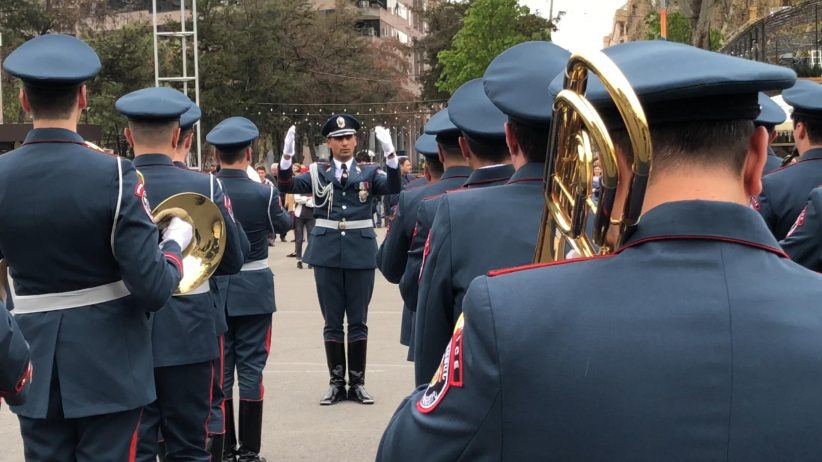By Ani Paitjan
Armenia’s Prime Minister Nikol Pashinyan was present at the 101st anniversary of the establishment of the country’s police force. Pashinyan attended the April 16 celebration with government officials, including Artur Vanetsyan, head of the National Security Service of Armenia.
In 2001, Armenia established April 16 as Police Day.
During the event, prizes were allocated to distinguished policemen.
Armenia’s citizens’ relationship with the police force has had a history of distrust due to instance of violence, human rights violations, and institutional corruption.
But this year’s celebration, the first one since the Velvet Revolution of Spring 2018, was different.
During his speech, Pashinyan reminded the audience that just one year ago, he and many of the policemen attending the ceremony were together, “but we were on different sides of the barbed wire.”
In Spring 2018, massive protests led by then-parliamentary deputy Pashinyan took place against the contested appointment of President Serzh Sargsyan as prime minister. The protesters encountered violence from law enforcement and illegal arrests.
Human rights violations and corruption (including bribery, nepotism, abuse of public office fraud) in the police force has been chronicled as a widespread and frequent phenomenon in Armenia. In a report released in 2013, Transparency International, an organization that ensures freedom of expression and protection of human rights, said it “observes justice, police and public administration as the sectors most vulnerable to corruption.”
According to the report, police made arbitrary arrests without warrants, beat detainees during arrest and interrogation, and used torture to extract confessions.
Following the Velvet Revolution, Pashinyan started an anti-corruption crusade that included the police.
After the appointment of the head of the National Security Service Artur Vanetsyan, Pashinyan stated that “the citizens of Armenia must feel confident, protected and nothing must put at risk their feeling of safety.”
Valeri Osipyan, Armenia’s Police Chief, told journalists in December 2018 that the traffic police sector sees the largest cases of corruption.
“Corruption has been eliminated in the traffic police system. Any police officer who will take a bribe, will be strongly punished,” said Osipyan.
During the award ceremony, when asked by journalists if he was satisfied with the recent reforms in the police, Pashinyan said, “Reforms have just begun.”
Read More: Europe: Armenia Must Improve Human Rights
















